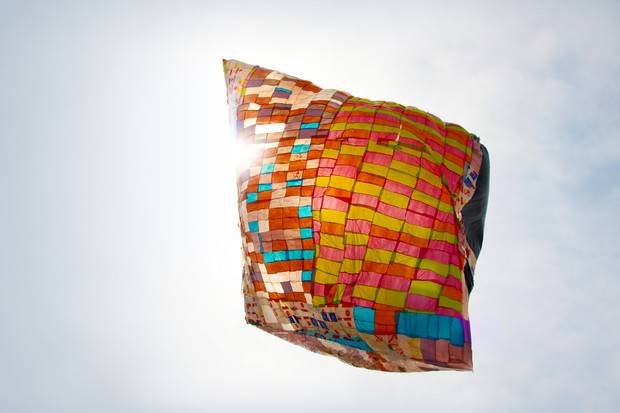Anthony Bourdain: Humanity to the Table
An eccentric chef discovered local flavor and served up an amazing portrait of the world on a TV show.
All human beings, from the most opulent to the poorest, need to eat to stay alive. After 10 years of books and travel around the world, chef and TV host, Anthony Bourdain, has captured an archive of the relationship between food and some of the most elemental aspects of life around the world.
Within the broader range of television, Bourdain’s No Reservations found its niche as a pioneering and iconoclastic show. With some seasons already available on Netflix, viewers can visit Haiti or Kurdistan while unintentionally documenting the damage of natural disasters and wars. They’ll share the tables of refugees, and those otherwise affected, or spend a day in the kitchen of the best restaurant in the world watching some of the most sophisticated and avant-garde dishes being prepared.
Unlike other reality-show cooking and recipe programs, Bourdain knows the gastronomy of the places he visits through his contacts with local people. It seems that Bourdain, as a culinary Cousteau, can reveal that fine link between a family’s preparation of meal and a broader political climate.

For all that, Bourdain is not a sympathetic to everyone he meets. Shows take turns that reveal racist or misogynist prejudice. And some could even potentially endanger the health of viewers attempting to follow in his footsteps. Fortunately, Bourdain seems fully aware of the effect on his own character, and he doesn’t hesitate to dissect his own prejudices as if he were preparing some big game dish for a major banquet.
Food says much more of the people who prepare it than do their words. When visiting any restaurant, we don’t think of all the anonymous hands that prepare and select the ingredients, of the producers, the farmers, the workers and the drivers. All of them make possible the miracles of flavor and thanks to the diligent hands of cooks all over the world.
And many of the ingredients in our life are coded in their ways. In an age that advocates and encourages an excessive consumption of fast food, the rituals of the mealtimes of office workers, during which vegetarians politicize consumption, and where the pressure to control the body across social networks is seemingly ubiquitous, a program like Bourdain’s allows us to explore the particularities of cultures and other ways of viewing the world through something as simple as a bowl of soup. Food encapsulates memory, belonging, affections and nostalgia. Bourdain isn’t hungry for food alone, but for the stories that occur before and after finally sitting down at the table.
Related Articles
When ancient rituals became religion
The emergence of religions irreversibly changed the history of humanity. It’s therefore essential to ask when and how did ancient peoples’ rituals become organized systems of thought, each with their
Seven ancient maps of the Americas
A map is not the territory. —Alfred Korzybski Maps are never merely maps. They’re human projections, metaphors in which we find both the geographical and the imaginary. The cases of ghost islands
An artist crochets a perfect skeleton and internal organs
Shanell Papp is a skilled textile and crochet artist. She spent four long months crocheting a life-size skeleton in wool. She then filled it in with the organs of the human body in an act as patient
A musical tribute to maps
A sequence of sounds, rhythms, melodies and silences: music is a most primitive art, the most essential, and the most powerful of all languages. Its capacity is not limited to the (hardly trivial)
The enchantment of 17th-century optics
The sense of sight is perhaps one the imagination’s most prolific masters. That is why humankind has been fascinated and bewitched by optics and their possibilities for centuries. Like the heart, the
Would you found your own micro-nation? These eccentric examples show how easy it can be
Founding a country is, in some ways, a simple task. It is enough to manifest its existence and the motives for creating a new political entity. At least that is what has been demonstrated by the
Wondrous crossings: the galaxy caves of New Zealand
Often, the most extraordinary phenomena are “jealous of themselves” ––and they happen where the human eye cannot enjoy them. However, they can be discovered, and when we do find them we experience a
Think you have strange reading habits? Wait until you've seen how Mcluhan reads
We often forget or neglect to think about the infinite circumstances that are condensed in the acts that we consider habitual. Using a fork to eat, for example, or walking down the street and being
The sky is calling us, a love letter to the cosmos (video)
We once dreamt of open sails and Open seas We once dreamt of new frontiers and New lands Are we still a brave people? We must not forget that the very stars we see nowadays are the same stars and
The sister you always wanted (but made into a crystal chandelier)
Lucas Maassen always wanted to have a sister. And after 36 years he finally procured one, except, as strange as it may sound, in the shape of a chandelier. Maassen, a Dutch designer, asked the










